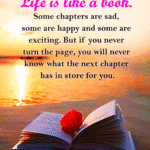“Just because I enjoy being alone doesn’t mean I’m lonely. Sometimes, solitude is where I feel most alive.”
The Misunderstood Beauty of Being Alone
A 2021 study revealed that 31% of individuals aged 16-74 in the US consider themselves lonely or experiencing loneliness, a slight increase from 30% in 2018, according to Our World in Data. However, not all lonely individuals share the same experience. Here are five types of loners:
1. Intentional Positive Loner: Prefers solitude for personal well being or different values, avoiding negativity or drama.
2. Intentional Negative Loner: Avoids socializing due to negative views, fear of rejection, or negative thoughts, possibly linked to mental health issues.
3. Unintentional Loner: Wishes to socialize but lacks social skills, feeling socially rejected and engaging in negative self-talk.
4. Short-Term Loner: Takes brief solitude breaks to recharge from social exhaustion, experiencing distress without this time alone.
5. Long-Term Loner: Desires social interaction but remains isolated for extended periods due to various reasons, leading to chronic loneliness and mental health struggles.
Solitude Is Not Loneliness
There’s a big difference between being alone and being lonely.
- Loneliness is the ache of disconnection.
- Solitude is the joy of self-connection.
Those who are comfortable with solitude often value relationships just as much as anyone else — but they also treasure their own company. They can navigate between social settings and silent moments with ease, and they understand the power of both.
This balanced approach may feel unusual to some, but for those who thrive in quiet, it feels like truth.
The Digital Age Paradox
Despite our hyper-connected world, many feel more isolated than ever.
Social media has made it easier to “stay in touch,” yet harder to feel genuinely seen. We compare our real lives to others’ highlight reels. We scroll through feeds filled with noise, but are often starved of meaning.
In such times, the choice to unplug, to retreat inward, to be alone by intention, becomes an act of personal clarity.
The Gifts of Solitude
When embraced mindfully, being alone offers so much:
- Clarity of thought
- Creative breakthroughs
- Emotional healing
- A deeper understanding of self
- Spiritual renewal
Solitude invites you to listen not to the world, but to your soul.
You begin to realize: I may be alone… but I am not lonely...a world that celebrates extroversion, busy schedules, and nonstop social interaction, choosing to be alone can seem odd—maybe even sad—to some. But solitude is not the enemy of happiness. In fact, for many, it’s the gateway to inner peace, strength, and self-awareness.
Being alone allows you to reconnect with yourself, listen to your inner voice, and recharge. It’s not about rejecting others—it’s about returning home to yourself.
 A Gentle Reflection
A Gentle Reflection
When was the last time you spent time alone—not scrolling or rushing—but simply being with yourself? What did you learn in that stillness?
“I care for myself. The more solitary, the more friendless, the more unsustained I am, the more I will respect myself.”









